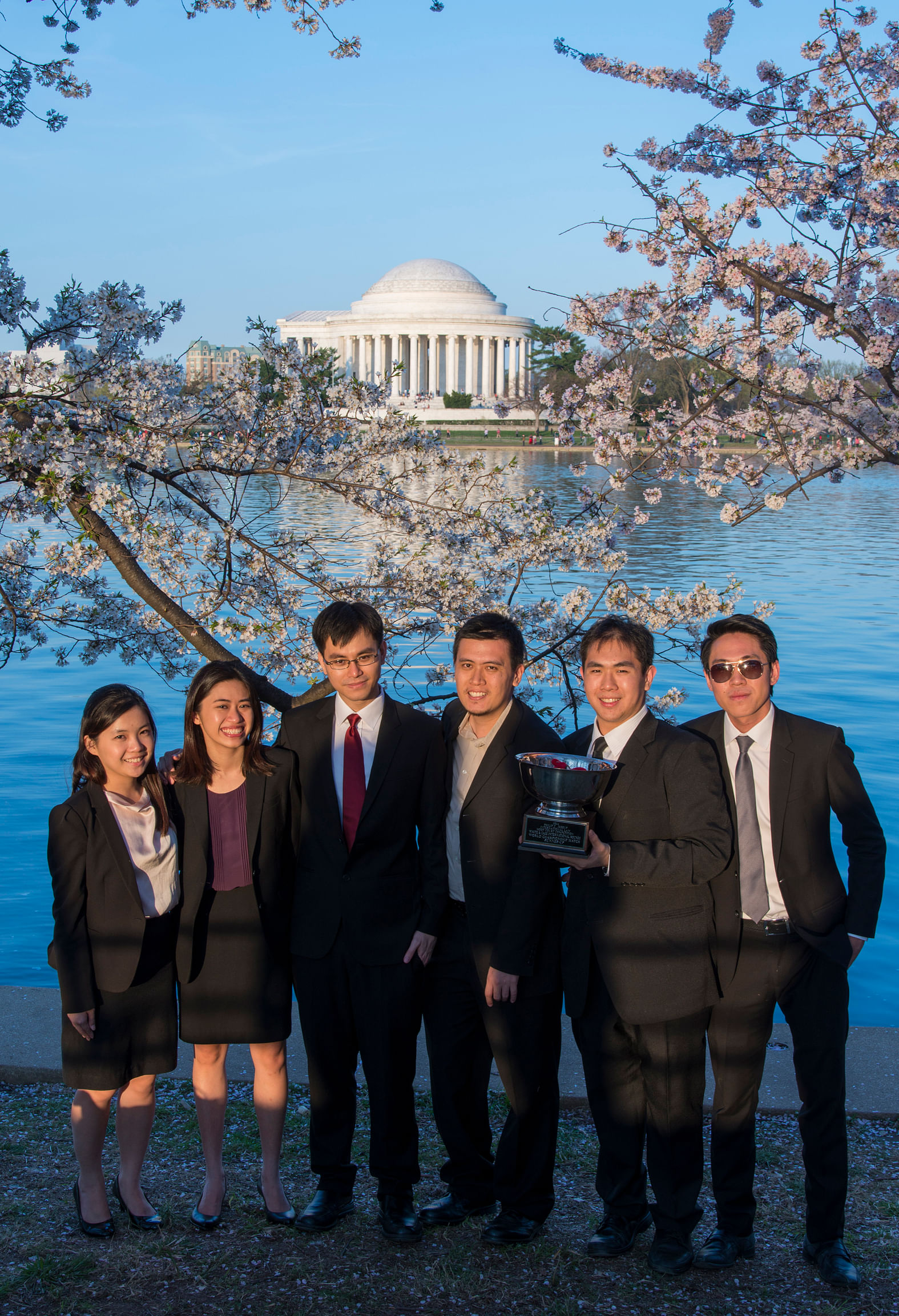Here in Singapore, 15,000km from Washington, DC, where it seems that everything the United States has done on the international stage in the past 70 years is under attack by some, I recently watched a riveting battle of advocacy between law students from Singapore Management University (SMU) and National University of Singapore (NUS).
They performed before their fellow team members and a packed audience of students, professors, government officials and family members.
The occasion was the national round of the Philip C. Jessup International Law Moot, named after the American judge who served on the International Court of Justice (ICJ) in the 1960s.
A moot is a mock judicial proceeding set up to examine a hypothetical case. Law schools around the world regularly require their students to compete in moots to hone their skills.
Watching the proceedings in the Supreme Court building, I was struck by the many small ways in which the US has spread good ideas across the globe over the years.
Call it "soft power" or by some other name, it was fascinating to watch the two teams argue a hypothetical legal dispute and to know that this is an exercise that each year dominates the lives of thousands of law students around the world. The teams all work long hours with an eye on surviving qualifying rounds in order to make the trip to the international rounds held in Washington, DC every year and from which a winner will emerge.
The idea of an international law moot was conceived by Harvard law professor Richard R. Baxter. In 1960, he enlisted a young assistant professor, Stephen M. Schwebel (who later went on to became a State Department deputy legal adviser and an ICJ judge himself), to devise the hypothetical case. Together, they decided to name it the Jessup Competition. In the beginning, it was an all-Harvard affair, but it was gradually opened up to other law schools.

Now, the competition is global. Almost 700 law schools in some 86 countries select a small group of law students to spend months preparing written and oral arguments. Only a few lucky ones make it to the international rounds.
The Jessup does more than simply spread the understanding of international law among law students. It shapes the lives of many people who go on to work in the international legal order.
I did "the Jessup" and, like most students who took on this challenge, it was the best part of law school. Like many non-Americans, it led me to attend graduate school in the United States and it shaped my own career.
Consider this: Singapore's Chief Justice Sundaresh Menon and other senior judges, its Minister for Law and for Home Affairs, four of its attorneys-general, and many other government officials were Jessup mooters who represented Singapore in the international rounds in Washington. As students, they steeped themselves in the rules of international law and they have retained that learning.
This has worked to the benefit of Singapore, which relies heavily on international law.
Watching the students argue before some of Singapore's top international legal minds, I was struck by the impact that this one small manifestation of the American impulse towards building international law has had in contributing to the rule of law around the world.
The moot, like the international legal system in the real world, operates through a common legal discourse, based on rules and principles of international law forged over the centuries. Much of that law, particularly the multilateral treaties made in the post-World War II period, was inspired by the United States.
It is ironic, and more importantly troubling, that the country that has done so much to promote the international rule of law for so long seems in danger of turning its back on it. It is a pity that some Americans are either unaware of or devalue what generations of American government officials and legal scholars have done to promote the international rule of law.
Contrary to a caricature that has recently gained traction in Washington, the US has sponsored many crucially important treaties. American negotiators were not patsies "taken to the cleaners" by more ruthless negotiators from other countries. They were seasoned negotiators who sought to advance American values and interests through the difficult and frustrating process of developing agreed rules of law. In the end, this has benefited the US and its treaty partners alike.
International law has its limits and weaknesses, and is only as strong and effective as the states which make it want it to be. But it is critically important to the international order. Many problems defy the power of any one state to solve and can be tackled only through international agreements. The motives and objectives of successive generations of international lawmakers have been and should remain timeless: belief in the rule of law as a check against arbitrary exercises of power, the value of agreed legal rules, and the desirability of discussion, negotiation and peaceful settlement of disputes over resort to the use of force.
So, almost 60 years after the Jessup Moot started, I watched five young advocates 15,000km from Washington argue how to settle a fictional international dispute peacefully. This one small American gift to generations of young lawyers around the world is also a gift to the countries in which they live.
Americans need to appreciate how the promotion of international law has been instrumental in creating a US-led rules-based international order that has enabled many other countries to develop and prosper and that, in the process, some important American values have become universal.
It is no surprise that the current administration's apparent desire to turn away from those rules has evoked such a strong reaction.
Now that they are in doubt, it is apparent that many nations around the world value these American-inspired rules, even if some in Washington now apparently do not.
•The writer is head of international dispute resolution (practice skills) at the NUS Centre for International Law.
